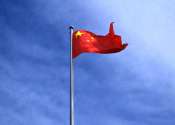Taiwan defends Foxconn over China tax probe
Taiwan defended tech giant Foxconn on Monday after China launched an investigation into several of the firm's sites, saying that Taiwanese businesses should not be subjected to "political interference".
Oct 23, 2023
0
32









